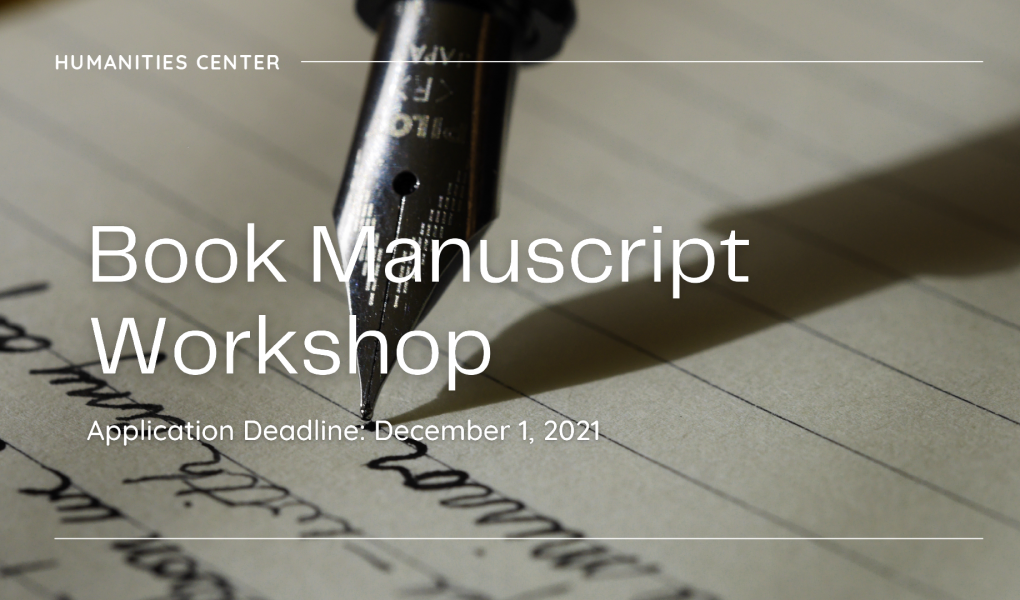What: BYU Humanities Center book manuscript mentoring workshop
Brief description: The BYU Humanities Center will support a faculty member (or collaborative team of faculty members) working toward the completion of a book manuscript by paying two reviewers of the scholar’s choosing to read the manuscript and offer substantive feedback. One of these reviewers will be internal to the College of Humanities; the other will be an expert in the field from another institution. The external reviewer should be qualified to offer professional as well as intellectual guidance (e.g., in recommending potential venues for publication, potential readers for the press, and so on).
Compensation: The center will arrange to bring the external reviewer to campus, provide one night (or, in some cases, two nights) in a hotel, pay for food and incidental expenses, and provide that reviewer a $1,000 honorarium. The center will also award the internal reviewer a $250 research stipend.
Eligibility: All faculty who have successfully completed their CFS review are eligible for this award, though preference will be given to associate professors. Successful applicants will have completed at least half the manuscript as well as a book proposal at the time of the workshop.
Timeframe/Timeline: The recipient of the award will work with the center to schedule the workshop dates and may use the awarded funding anytime during the 2020 calendar year. Successful applicants will be expected to submit the manuscript to a press within one year of the workshop.
Deadline: December 1, 2021
Application materials: Applications must include a one-page cover letter, project description of 2-5 single-spaced pages (explaining the project’s argument, significance, possible venues, and short list of potential external reviewers—with a description of their suitability for providing intellectual and professional mentoring), and a sample chapter (or its equivalent) from the manuscript. Successful applications will make a case for the pertinence of the project’s contribution to its field and may provide supporting documents (e.g., evidence of contact with presses, etc.).






